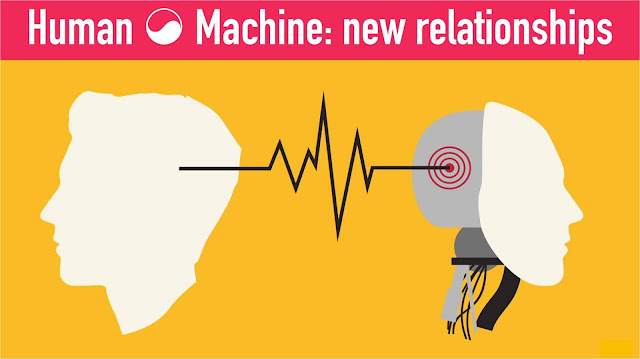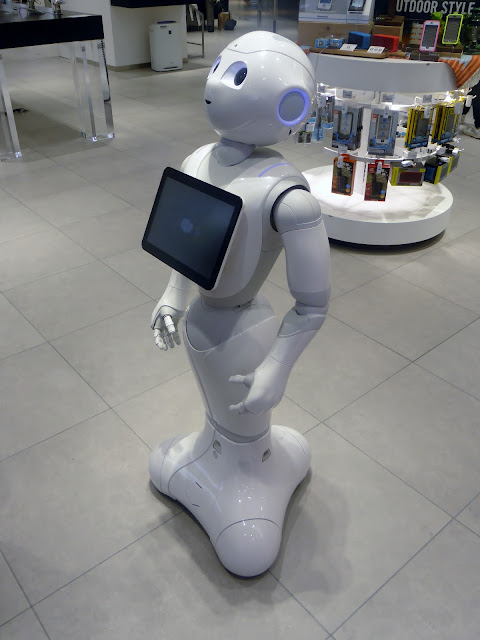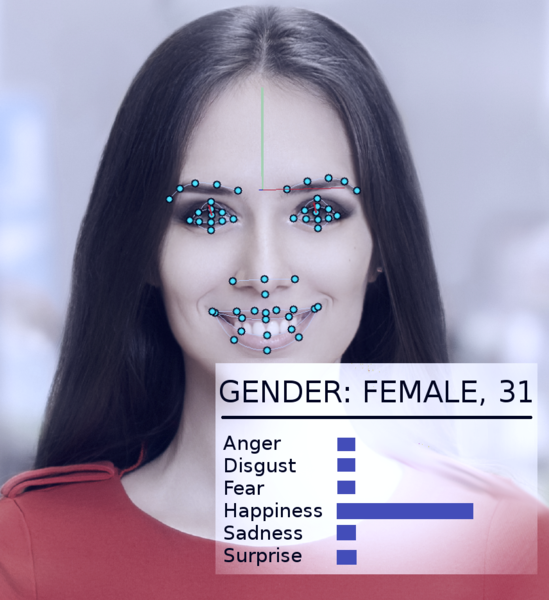How Artificial Intelligence (AI) Changing Our Traveling Experience
How Artificial Intelligence (AI) Changing Our Traveling Experience
Artificial intelligence is rising
all the time, creating it additional reliable and a lot of engaging as a
business answer. Specially, businesses within the travel business are taking
advantage of AI so as to perform a range of administrative and client service
tasks. Here, you may learn the uses and advantages of artificial intelligence,
and justify how it's changing the method travel corporations operate.
Understanding Artificial Intelligence
The thought of artificial
intelligence, or AI, is usually mentioned, however will be slightly harder to
outline. Basically, it refers to computers or machines playing tasks that might
usually need human intelligence to hold out. This could, for instance, be
learning lessons, creating selections, or recognising and interpreting speech.
Artificial intelligence has
existed for many years, however it's solely comparatively recently that
computers and alternative machines became advanced and reliable enough to hold
out complicated tasks without assistance. The thought is powerfully connected
to concepts of automation, wherever processes are administered with very little
or no human intervention.
In the modern age, it's an
accepted proven fact that businesses can collect and store large quantities of
information. This may facilitate to alter AI, with machines using information
to perform tasks starting from data analysis and problem-solving, through to
speech translation, direct electronic communication and improving
personalisation throughout the client journey.
The Role of AI Among the Travel Business
The capability for AI to perform
tasks that have historically needed human cognitive operate has created it
particularly helpful for those within the travel business, as a result of
deploying AI will save businesses time and cash, whereas probably eliminating
human error and permitting tasks to be performed quickly, at any time of the
day.
Most hotels and resorts trust
heavily on delivering wonderful client service to make their name and AI
technology will assist with this in a very wide range of various ways in which.
for instance, AI are often wont to improve personalisation, tailor
recommendations and guarantee quick response times, even within the absence of
employees.
Artificial intelligence has
advanced to the purpose wherever it's frequently wont to assist and communicate
with clients, ‘learning’ from each of those interactions and rising future
interactions as a result. Moreover, AI will assist with tasks like information
analysis, calculations and drawback finding, all of which might be valuable to
hotel owners.
Examples of AI among the Travel
business
The role of AI among the business
world has multiplied dramatically over the past decade, and therefore the
previous few years, especially, have seen far more widespread adoption within
the travel business. Below, you discover 6 of the foremost vital ways in which
the technology is presently being deployed.
1. Chatbots and On-Line Client Service
For hotels and different
businesses within the tourism business, one amongst the foremost exciting uses
for AI is for providing help to clients on-line. Especially, there has already
been widespread adoption for the needs of powering chatbots on social media
platforms, similarly as instant electronic communication apps.
Used in this manner, AI is in a
position to reply to queries and supply valuable info to clients, even once a
client service rep isn't accessible. Clients are hard-to-please quicker and
quicker response times on on-line platforms, and AI permits businesses to
deliver times that may be not possible for humans.
2. Face-to-Face Client Service
While the utilization of AI for
powering on-line client service is currently comparatively commonplace, one
among the rising trends is for the technology to be used for face-to-face
client service interactions too. Crucially, this has the flexibility to chop
queues at info or reception desks, and improve overall potency.
One example of this technology in
action is that the AI robot ‘Connie’, that has been deployed by Hilton. This
robot uses AI and speech recognition to provide traveler info to clients who
speak to that. Every human interaction additionally helps to show the robot,
improving the standard of all future communications.
3. Data Processing and Information Analysis
Finally, it's necessary to know
that the applications of AI among the travel and tourism business don't seem to
be restricted to client service alone. In actual reality, one amongst its most
well liked and effective uses is for gathering and decoding information so as
to draw conclusions regarding clients, business practices and evaluation
methods.
The key advantage of AI during
this specific field is its ability to sort through large amounts of information
quickly and accurately, wherever the equivalent for humans would take considerably
longer and probably contain a lot of errors. The Dorchester collection hotel,
for example, has used AI to sort through client feedback from surveys, reviews
and on-line polls, so as to make a clearer image of current opinion, in
real-time.
4. Machine Learning, the (new) Hidden Communicator
Airlines and airports are beginning to mimic mega stores, merchandising everything from seats to blankets and hotel rooms. Machine Learning is quick rising because the hidden
communicator to help within the sales. Using massive information and machine
learning, airlines are ready to build recommendation engines that facilitate
personalise offers around merchandise from their inventory and partner
catalogues.
Applying machine learning in
travel business provides powerful electronic messaging and merchandise bundling
capabilities supported context and traveller propensity. This is often
necessary for travel brands since travelers expect travel suppliers to
understand them better and provide them deals and services based on their past
preferences. However is personalization pretty much as good because it might
be? The span and quality of personalization in travel offers is, in fact, a key
improvement space, significantly given its growing importance and therefore the
loyalty that it will inspire in clients. In keeping with a recent survey, of these who receive offers from travel suppliers, solely 23rd rate
them as wonderful, in terms of being based on the traveler’s specific
preferences, going away plenty of scope to grow. Solely a 3rd (31% of
respondents) report using them whenever or most of the time. Also, of these who
don't forever use the offers that they receive, the foremost common reasons are
that they don’t reach the correct time (45% respondents say so), expire early
on or don’t provide enough saving (35% respondents say so).
Machine Learning also can use
external information to proactively assist travelers in creating fast
selections (such as a amendment in travel plans triggered by storm forecasts). ‘Connected Traveler’, for instance, uses Machine Learning
to know the traveller. It integrates traveller data from various useful
applications and creates a 360-degree read of behavior and trends that eventually
helps drive higher conversion and improves reliability.
5. Face recognition with extra heft from blockchain
Travel needs continual scrutiny
of travel documents by completely different sets of individuals. There are
complicated boarding and landing processes (especially for cruise liners). Face
recognition technology guarantees to bring an end to those boring paper-bound
processes. With face recognition, travellers will move with ease through
airports, immigration, customs and board aircrafts without the necessity for having
travel documents scrutinized at every step. Once combined with blockchain, it
becomes easier for clients to go to restaurants, duty free stores or access
recreation with a straightforward facial scan. The blockchain technology
ensures that reliable and trustworthy traveller information is created
accessible to finish the transactions.
6. Social media to uncover sentiment
There are several social media
listening tools. Of interest to the travel business may be a set specifically
designed for travel applications. These tools decipher social sentiment and
co-relate it to the traveler’s journey, whether or not before the particular
travel, throughout travel or post travel. May be a travel client annoyed due to
a delayed flight or by a hotel room that's less-than-perfect? If the client
makes a social media post expressing the dissatisfaction, the listening tool analyzes
the client’s intent and therefore the context to automatically reach out with
real time interventions that are possibly to convey a positive impact. The
interventions might vary from providing extra info, serving to the client
perceive matters to a lot of choices that may meet the client’s needs or
provide him/her a reduction on ensuing purchase. In keeping with a survey, over
3 quarters (77%) of respondents have had a foul experience with a travel
supplier. As a result, over 1 / 4 (27%) ne'er engaged thereupon travel provider
again. of these who have had a foul expertise with a travel provider, the bulk
(74%) report that the travel provider tried to redeem themselves. providers
that try and redeem themselves when a foul experience acquire client trust and
repeat business. this may be increased by AI-powered bots, which might analyse
through unstructured information and use language process to reply suitably to
client issues on digital channels.
On top of Six applications of AI
in travel businesses have one factor in common: they scale back the time taken
to finish tasks whereas improving the accuracy of processes and outcomes. In a
business wherever time is crucial, and data is consistently dynamical, these
are priceless capabilities.
Within the following articles you
discover the foremost innovating digital trends within the travel industry:
“Internet of Things (IoT) transforming Travel Industry”.






0 comments